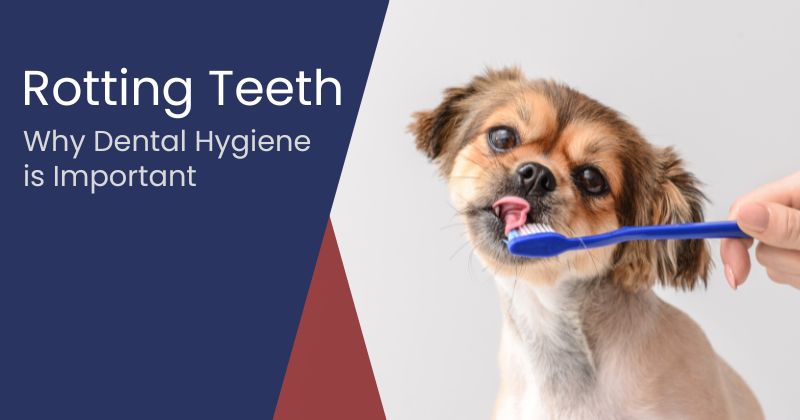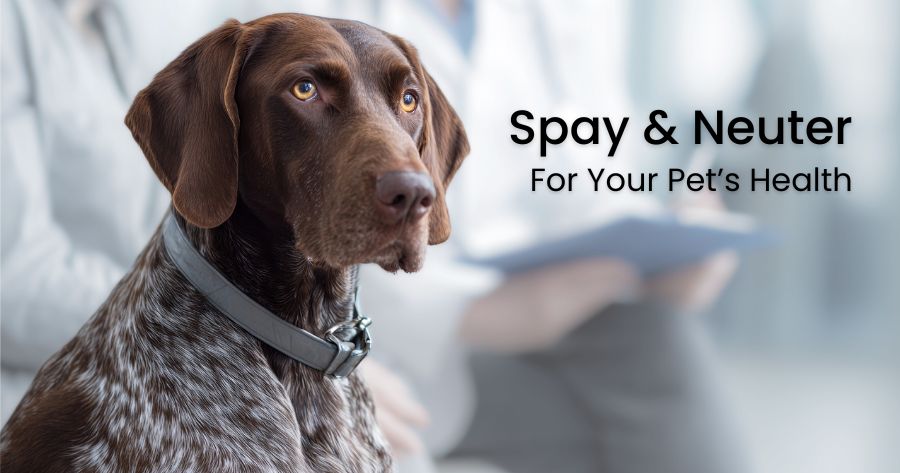
Dental health plays a significant role in your dog's overall well-being. However, many pet owners often overlook the importance of dental care until issues such as rotting teeth arise. If your dog’s teeth are deteriorating, it’s not just a cosmetic problem—it can lead to severe health concerns. At Rockdale Animal Hospital in Conyers, GA, we’re here to support you in maintaining your dog’s health and well-being. If you suspect your dog’s teeth are rotting, call us at (770) 922-8600 or request an appointment today.
Several factors contribute to tooth decay in dogs, and recognizing these can help you prevent dental issues from escalating. Without regular brushing or professional cleanings, plaque and tartar build-up can lead to tooth decay and gum disease. Additionally, diet plays a crucial role—foods high in sugar or starch can accelerate tooth decay, as bacteria in the mouth feed on these elements. Genetics can also influence your dog’s dental health. Some breeds, such as toy breeds or brachycephalic dogs (like pugs and bulldogs), are more prone to dental problems due to the structure of their mouths. Furthermore, trauma to the teeth, whether from chewing on hard objects or accidents, can cause cracks or fractures, making them susceptible to decay.
When left untreated, rotting teeth can cause a multitude of health problems for your dog.
Recognizing early signs of tooth decay is key to managing your dog’s dental health. Common indicators include persistent bad breath, discolored or damaged teeth (brown, black, or chipped), and discomfort when chewing. Swollen, red, or bleeding gums are also warning signs, as well as loose or missing teeth. If you notice any of these symptoms, professional dental care is essential. At Rockdale Animal Hospital, we can assess your dog’s oral health and recommend treatment. Call (770) 922-8600 or schedule an appointment today.
Brushing your dog’s teeth at home is important, but professional cleanings provide deeper care to prevent and treat decay. At Rockdale Animal Hospital, we remove plaque and tartar from areas a toothbrush can’t reach, like below the gum line. Professional cleanings also include dental X-rays and a full exam to detect issues such as decay, fractures, or infections early, preventing more serious treatments later.
During your dog's dental cleaning, they will be placed under anesthesia to ensure their comfort and safety. This allows our veterinarians to thoroughly clean their teeth, removing plaque, tartar, and bacteria that cause decay. We will also assess their teeth and gums for any signs of disease or damage. Afterward, you will receive recommendations for maintaining your dog's dental health at home, such as brushing techniques and dietary changes.
Preventative care is one of the most effective ways to stop tooth decay before it starts.
When selecting products to maintain your dog’s dental health, be sure to choose items that are both effective and safe. Veterinary-approved toothpaste, brushes, and dental chews are designed with your dog's needs in mind. Avoid human toothpaste, as it contains ingredients that can be toxic to pets. Additionally, not all dental chews are created equal, so look for those with the Veterinary Oral Health Council (VOHC) seal of approval.
Timely intervention is critical when it comes to managing tooth decay in dogs. The longer you wait to address rotting teeth, the more severe the consequences can become. As tooth decay progresses, it can lead to extensive infections, the need for extractions, and even systemic health problems. Addressing the issue early not only alleviates your dog’s pain but also prevents further complications. At Rockdale Animal Hospital, our dental treatments are tailored to your dog’s unique needs. Call us at (770) 922-8600 or request an appointment to discuss your dog’s dental health.


